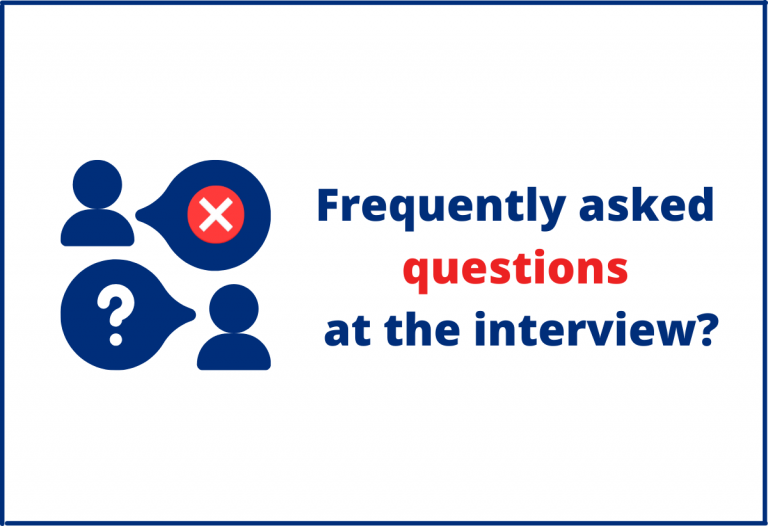
We will advise you on the most frequently asked questions and how to prepare well for an interview.
There are many interview questions that have become the standard for choosing a suitable and reliable candidate. We can meet them at almost every job interview. We will advise you on the most frequently asked questions and how to prepare well for an interview.
Work experience
It is almost impossible to predict all the questions that a recruiter may ask you. Therefore, it is good to get acquainted at least with those who often appear often at a job interview. True quick response and confident response evokes the reliability and good impression of the candidate. Avoid possible vague answers and try to answer directly. Frequently asked questions include:
- Describe your current day’s schedule in your last job.
- Who was / is your superior and who, on the contrary, answered you.
- Describe the most important project you have worked on so far.
- What was / is your responsibility – the most important part of your work?
- What kind of work are you most interested in?
- How did you get your last job, and why are you leaving?
- Which job have you enjoyed the most so far?
- Did you manage any career advancement in your last job?
- Do you think that you have been sufficiently rewarded for the work you have done? Why yes / no?
- Which (geographical) location do you prefer?
- What special offer can you offer?
- Where, according to your ideas, will you be in five years?
- How do you want to achieve these plans?
They will also ask you questions about your success, motivation or skills.
They will also ask you questions about your success, motivation or skills. Your answers should be explained on a specific case or. the life situation in which you find yourself. Avoid general answers that create a vague view of reality. These questions can be the following:
- What are your salary ideas?
- What do you know about our company?
- Which other companies do you find interesting?
- How long have you been looking for a job?
- How did you find out that we were looking for a worker for this position?
Questions about leadership experience
They will tell you about your management and leadership skills in the team. Be honest and most importantly tell the truth because in this case, the lie has short legs. An experienced recruiter can know whether you are telling the truth or misleading. The recruiter can ask the following:
- Describe your leadership style.
- How would your subordinates characterize you?
- Why are you a capable leader?
- What do you value most about leading people?
- What’s the least?
- Which factors do you think most threaten the success of the team?
- How do you manage responsibility?
- What is your most important position as a leader?
- What type of people is the hardest for you to lead?
- Describe to me the situation that was most difficult for you as a manager.
- What do you do to motivate others as best you can?
Communication skills
Communication skills are used to being tested by the extent to which you are able to answer a question. Obviously, good-sounding answers to such questions can be learned quickly. Here it is necessary to pay attention to unexpected questions that an experienced recruiter can ask. An anticipated question, an expected answer. You should not follow this rule. Communication skills are often asked:
- Describe an experience where you had to work with someone you didn’t like.
- How do you spend your free time?
- What are your work goals?
- What motivated you to do these goals?
- Describe a situation where your opinions were in conflict with those of a team member.
- How did you solve the situation? Has this affected your employment relationship in any way?
- What do you mean by “Open Door Policy”?
- What are your best skills?
- How important is communication in your current position?
Conflict solving
The aim is to assess the extent to which the candidate is able to resolve conflicts, argue or find solutions to conflicts. Interpersonal relationships and the ability to resolve disagreements in the workplace are crucial for every single company. This question seeks an objective view of whether a given candidate views the conflict objectively or is guided emotionally. The candidate should admit his share of guilt and explain how he resolved the situation. Be prepared for the following questions:
- Describe to me a situation in which you were not satisfied with your performance.
- What did you learn from this mistake?
- Describe to me a situation that seemed unsolvable at the moment.
- How did you proceed?
- Describe to me the situation when you last did not control yourself at work?
- Describe a conflict with a colleague and how did you resolve it?
- Describe the moment when your supervisor criticized your work?
